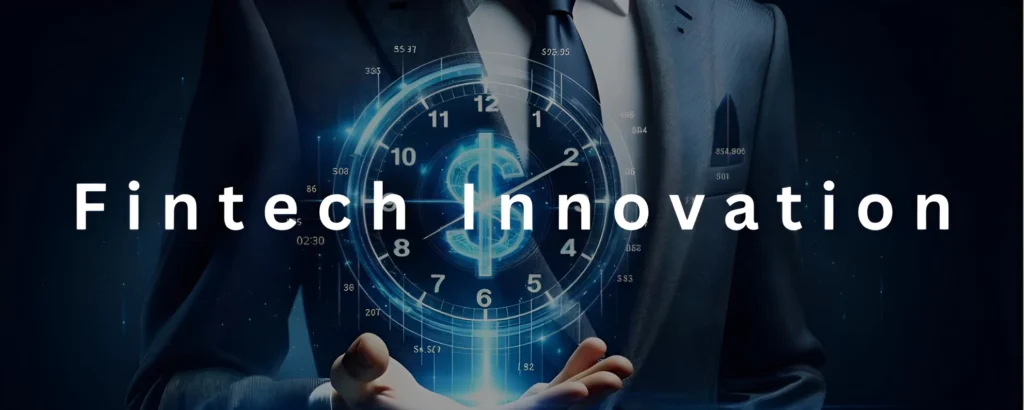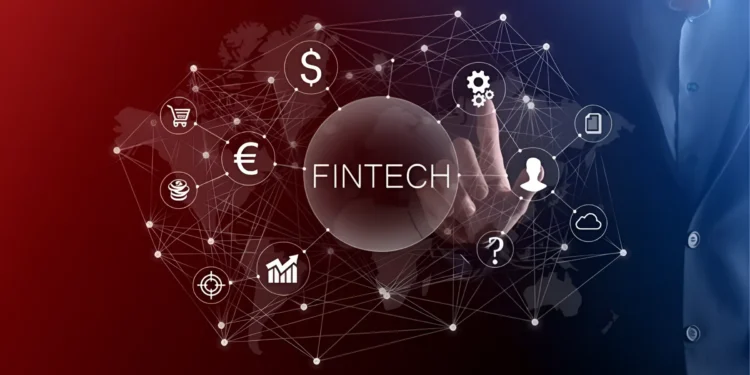Artificial intelligence is igniting a revolution in the world of financial technology. What was once a rigid, paperwork-driven sector dominated by massive institutions is being transformed from the ground up by skillful AI startups. This article will answer how AI is revolutionizing fintech and the different sectors it affects.
How is AI Revolutionizing Fintech?
Major changes are being achieved by AI thanks to highly customized digital solutions. Robo-advisors, which employ vast amounts of user data to create individually customized investing portfolios based on each user’s risk tolerance, financial objectives, economic circumstances, and personal preferences, are powered by advanced algorithms.
By understanding individuals at a highly granular level, AI can consider non-traditional variables to assess creditworthiness that traditional FICO score models overlook. This expands lending access for those previously unseen as high-risk. Platforms like LendingTree now approve over 60% of applicants rejected by major banks using AI underwriting, maintaining strong portfolio performance.
Conversational interfaces are also revolutionizing customer interactions. Natural language chatbots and voice assistants can address basic queries endlessly at minimal cost compared to human agents locked to business hours. Meanwhile, machine vision enables contactless account openings leveraging computer cameras instead of paperwork, streamlining new customer onboarding.
How AI is Enhancing Operations

AI delivers the highest returns by digitizing inefficient back-office workflows. Robotic process automation allows “digital laborers” to execute repetitive administration tasks around the clock with perfect accuracy. This includes data entry from paper documents scanned using optical character recognition and computer vision technology.
Processes like customer onboarding, loan application processing, transaction reconciliation, and regulatory reporting are fully automated through RPA. Financial institutions have driven 35-50% cost reductions by integrating these robots. Deloitte finds RPA could save banking $859B in total annual operational expenses by 2030.
Predictive analytics powered by machine learning algorithms optimize operations further. These models study petabytes of structured metrics plus unstructured text, utilizing natural language processing. Outcome insights forecast equipment maintenance schedules, flag exceptions requiring investigation, and predict future processing bottlenecks preemptively. Resources are allocated dynamically for the highest efficiency gains across all lines of business.
Why is AI Transforming Risk Management?
AI enhances every aspect of risk assessment that fintech undertake. When monitoring for fraudulent activities, machine learning examines account behaviors, authentication locations, device usage patterns, and associated links between entities in real-time. This scoops malicious transactions financial criminals constantly try evolving.
AI also infuses underwriting with new severity. Alternative datasets plug holes old credit scoring overlooks, including variables like education/employment histories, social networks, and digital footprints. Models study bigger pictures approving 60-80% of applications major banks reject while maintaining low delinquency.
Compliance burdens pose massive costs but AI streamlines auditing. Natural language processing reviews policies/procedures while computer vision analyzes forms/reports. Together, they flag exceptions requiring investigation by analysts, replacing paper-heavy legwork. AI therefore bolsters both security and financial inclusion worldwide through multidimensional risk insights.
How is AI Personalizing the Customer Experience?
AI reimagines customer service at a hyper-individual level. Intelligent virtual assistants now power-tailored recommendations based on nuanced personae rather than broad demographics. Conversational agents infer context and preferences to resolve issues promptly while enhancing engagement.
Advanced analytical tools generate spending/investment suggestions customized to personal balance sheets, goals, and environmental/geopolitical factors in real time. Interactive financial simulations propose optimized strategies considering infinite possibilities. Natural language capabilities translate complex markets into digestible conversations.
Computer vision supplements interactions as well. Facial/emotion recognition may measure comprehension to personalize explanations intuitively. Biometrics authenticate clients securely without passwords. Over time, neural networks will profile customers holistically, synthesizing myriad identifiers to proactively alert opportunities aligning with evolving priorities. Relationship intimacy will reach new heights through AI sensitivity.
How is Fintech Innovation Accelerating?

While mature applications exist, limitless possibilities remain on the horizon. As 5G networks enable exponentially faster data transmission, edge computing will redistribute processing power ubiquitously. This unleashes augmented/mixed reality assisting financial tasks augmented reality style through smart glasses.
Blockchain networks and cryptocurrencies integrating AI stand to disrupt core systems end-to-end as well. Autonomous digital banks may emerge delivering advisory, lending, and investment services through conversational interfaces independently of physical branches. AI chips specialized for machine learning workloads will further turbocharge insights.
Regulators must work closely with innovators ensuring sensible, ethical development focusing on financial health for all. With oversight avoiding harms like bias while strengthening security, AI promises to extend prosperity through education personalized down to individual nuances and talents. Creativity remains fintech’s crown jewel fueling better financial lives ahead.
Conclusion | How is AI Revolutionizing Fintech?
AI is revolutionizing every aspect of fintech services through highly personalized automated solutions, optimized back-office operations, comprehensive risk analytics, and reimagined customer experiences.
While still developing, AI will combine with emerging technologies to reinvent banking and investing at an autonomous, globally inclusive scale. With regulators as partners, responsible development holds immense promise advancing prosperity worldwide through continuous learning capabilities AI excels in. Fintech remains on the cutting edge of progress, and its golden age has only just begun.













